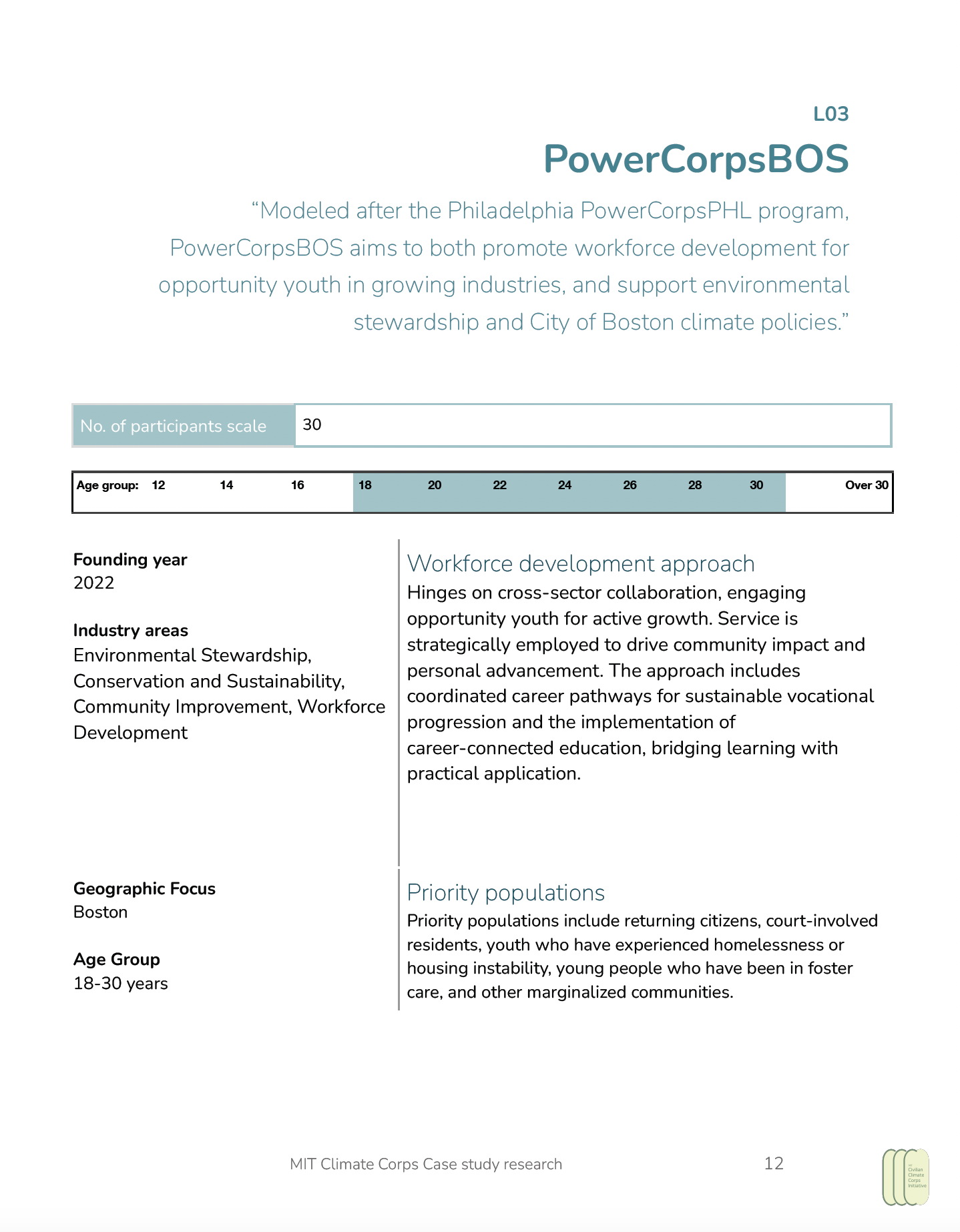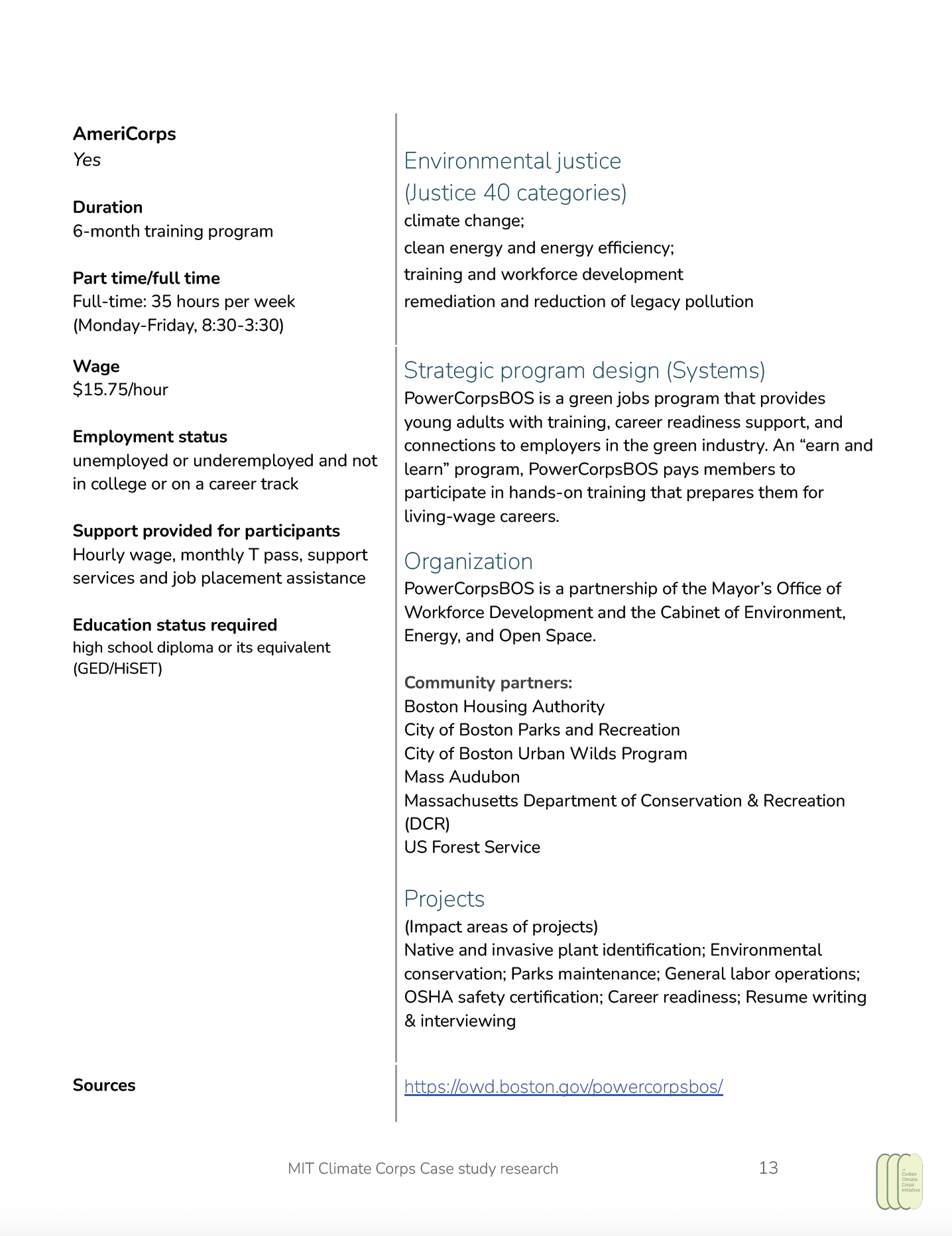The project is focused on corps that seek to have an impact on both climate and equity, through expanding economic opportunity for Black, Indigenous, People of Color (BIPOC) young adults and actively working towards climate mitigation, resilience and environmental justice.
The project is aimed at gathering data that can be useful to people starting or leading corps, seeking to make an impact on climate and on equity. The scale of programs we covered was within city or neighbourhood scale. The goal has been to provide information and inspiration that can accelerate the work of organizations that center young adults from BIPOC communities and offer a platform for action and leadership development.
On a day to day basis, I created teaching tools for the MIT CCCi by conducting interviews, collating and visualizing data, writing reports and organizing events. I also created visuals for training corps members for programs like Eastie Farms and Power Corps Boston to scale up their climate initiatives. I understood the intricacies of local green jobs in Boston and the north-east region while maintaining long-term relationships with our partners.
Out of 29 selected programs, I picked 15 programs, including university models to prepare
detailed case studies, through online information. For 6 programs(marked as *), I further
conducted one-on-one interviews to verify this data.
L01.BlocPower’s Civilian Climate Corps*
L02. Green City Force, NYC
L03. PowerCorps Boston
L04. PowerCorps Philadelphia*
L05. Eastie Farms Climate Corps
L06. Civic Works, Baltimore*
L07. Louisiana Green corps*
L08. Climate Corps (UCONN)*
L09. San Jose Conservation Corps*
L10. Austin Climate Corps
L11. American Youthworks (YB, TXCC)
L12. New Orleans Resilience Corps
L13. California Volunteers: a. College Corps, b. Climate Action Corps
L14. CUNY Service Corps
L15. Rutgers Climate Corp
detailed case studies, through online information. For 6 programs(marked as *), I further
conducted one-on-one interviews to verify this data.
L01.BlocPower’s Civilian Climate Corps*
L02. Green City Force, NYC
L03. PowerCorps Boston
L04. PowerCorps Philadelphia*
L05. Eastie Farms Climate Corps
L06. Civic Works, Baltimore*
L07. Louisiana Green corps*
L08. Climate Corps (UCONN)*
L09. San Jose Conservation Corps*
L10. Austin Climate Corps
L11. American Youthworks (YB, TXCC)
L12. New Orleans Resilience Corps
L13. California Volunteers: a. College Corps, b. Climate Action Corps
L14. CUNY Service Corps
L15. Rutgers Climate Corp


Research Assistant , Urban Risk Lab
Supervisor: Lisbeth Shepherd
2022-23